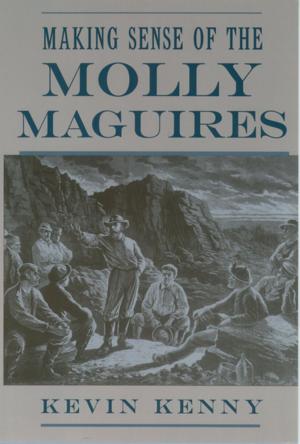The Rise of the Image, the Fall of the Word
Nonfiction, Entertainment, Performing Arts, Television, History & Criticism, Social & Cultural Studies, Social Science| Author: | Mitchell Stephens | ISBN: | 9780199880072 |
| Publisher: | Oxford University Press | Publication: | October 8, 1998 |
| Imprint: | Oxford University Press | Language: | English |
| Author: | Mitchell Stephens |
| ISBN: | 9780199880072 |
| Publisher: | Oxford University Press |
| Publication: | October 8, 1998 |
| Imprint: | Oxford University Press |
| Language: | English |
For decades educators and cultural critics have deplored the corrosive effects of electronic media on the national consciousness. The average American reads less often, writes less well. And, numbed by the frenetic image-bombardment of music videos, commercials and sound bites, we may also, it is argued, think less profoundly. But wait. Is it just possible that some good might arise from the ashes of the printed word? Most emphatically yes, argues Mitchell Stephens, who asserts that the moving image is likely to make our thoughts not more feeble but more robust. Through a fascinating overview of previous communications revolutions, Stephens demonstrates that the charges that have been leveled against television have been faced by most new media, including writing and print. Centuries elapsed before most of these new forms of communication would be used to produce works of art and intellect of sufficient stature to overcome this inevitable mistrust and nostalgia. Using examples taken from the history of photography and film, as well as MTV, experimental films, and Pepsi commercials, the author considers the kinds of work that might unleash, in time, the full power of moving images. And he argues that these works--an emerging computer-edited and -distributed "new video"--have the potential to inspire transformations in thought on a level with those inspired by the products of writing and print. Stephens sees in video's complexities, simultaneities, and juxtapositions, new ways of understanding and perhaps even surmounting the tumult and confusions of contemporary life. Sure to spark lively--even heated--debate, The Rise of the Image, the Fall of the Word belongs in the library of millennium-watchers everywhere.
For decades educators and cultural critics have deplored the corrosive effects of electronic media on the national consciousness. The average American reads less often, writes less well. And, numbed by the frenetic image-bombardment of music videos, commercials and sound bites, we may also, it is argued, think less profoundly. But wait. Is it just possible that some good might arise from the ashes of the printed word? Most emphatically yes, argues Mitchell Stephens, who asserts that the moving image is likely to make our thoughts not more feeble but more robust. Through a fascinating overview of previous communications revolutions, Stephens demonstrates that the charges that have been leveled against television have been faced by most new media, including writing and print. Centuries elapsed before most of these new forms of communication would be used to produce works of art and intellect of sufficient stature to overcome this inevitable mistrust and nostalgia. Using examples taken from the history of photography and film, as well as MTV, experimental films, and Pepsi commercials, the author considers the kinds of work that might unleash, in time, the full power of moving images. And he argues that these works--an emerging computer-edited and -distributed "new video"--have the potential to inspire transformations in thought on a level with those inspired by the products of writing and print. Stephens sees in video's complexities, simultaneities, and juxtapositions, new ways of understanding and perhaps even surmounting the tumult and confusions of contemporary life. Sure to spark lively--even heated--debate, The Rise of the Image, the Fall of the Word belongs in the library of millennium-watchers everywhere.















